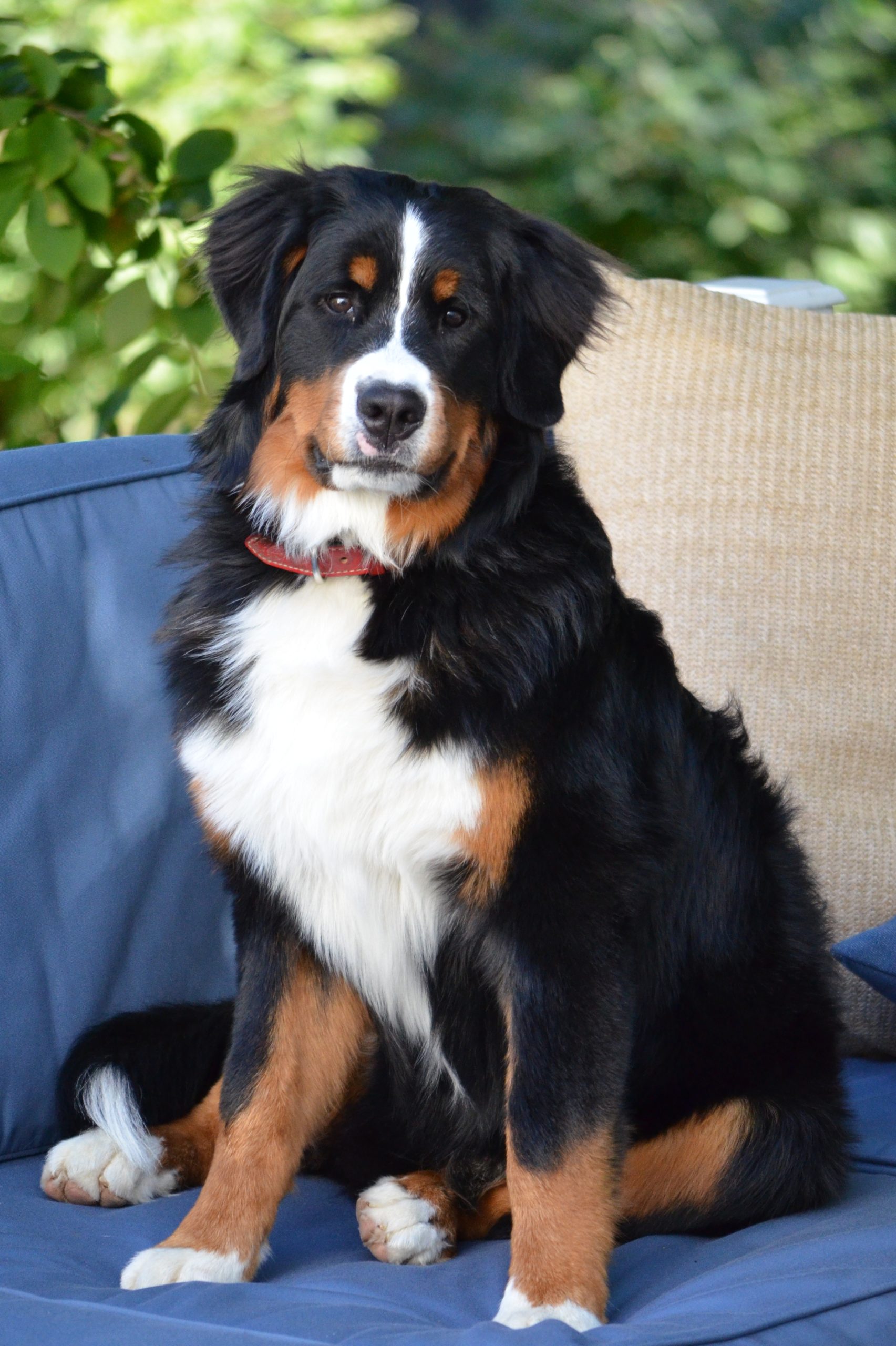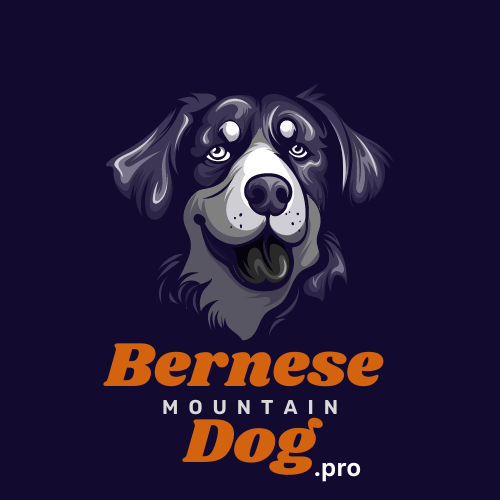The Saint Bernese, also known as the St. Bernese, is a hybrid breed that combines the characteristics of the Bernese Mountain Dog and the Saint Bernard. This large, gentle, and loving dog is a popular choice for families seeking a loyal and affectionate companion. In this comprehensive blog post, we’ll delve into the details of the Saint Bernese, exploring its physical traits, temperament, exercise and dietary needs, grooming requirements, health concerns, and suitability for different family environments.
Physical Characteristics of the Saint Bernese

The Saint Bernese is a large and imposing breed, inheriting the size and stature of its parent breeds. Here are the key physical characteristics of this hybrid:
- Height: 26–35 inches
- Weight: 100–120 pounds
- Lifespan: 6–10 years
- Colors: The Saint Bernese can come in a variety of colors, including white, brown, and black, with a possible white tip on the tail.
Temperament and Personality

The Saint Bernese is known for its loyal, loving, friendly, and gentle nature. These dogs are typically good with children and other animals, making them a great choice for families. However, they can also be headstrong and stubborn at times, requiring an experienced trainer to ensure proper socialization and obedience training.
Here’s a closer look at the temperament and personality of the Saint Bernese:
- Loyal and Loving: The Saint Bernese forms strong bonds with their family members and is devoted to their well-being.
- Friendly and Gentle: These dogs are typically gentle giants, known for their friendly and approachable demeanor.
- Good with Children and Pets: The Saint Bernese is generally patient and tolerant with children and other household pets.
- Intelligent and Trainable: While they can be stubborn, the Saint Bernese is an intelligent breed that responds well to positive reinforcement training.
- Potential for Stubbornness: Due to their size and strength, the Saint Bernese may exhibit some stubbornness, requiring an experienced owner who can provide firm and consistent training.
Exercise and Dietary Requirements
As a large breed, the Saint Bernese has significant exercise and dietary needs to maintain its health and well-being.
Exercise Requirements
The Saint Bernese requires a lot of exercise to stay fit and healthy. Ideally, they should have access to a decent-sized yard and be taken on daily walks of at least 30 minutes each. These dogs also enjoy activities like hiking, swimming, and playtime in a secure, fenced area.
Dietary Requirements
The Saint Bernese needs a high-quality dog food to support its large size and active lifestyle. They typically require 3–4 cups of dog food per day, divided into two or three meals to help prevent bloat, a potentially life-threatening condition.
Grooming and Coat Care
The Saint Bernese inherits a thick, long, and double-layered coat from its parent breeds. This coat requires regular grooming to prevent infections around the ears and mouth, as well as to manage the heavy shedding that occurs during seasonal changes.
Here’s a breakdown of the Saint Bernese’s grooming needs:
- Brushing: Regular brushing, at least a few times per week, is essential to remove loose hair and prevent matting.
- Bathing: The Saint Bernese should be bathed as needed, typically every 4–6 weeks, to maintain cleanliness and skin health.
- Ear and Mouth Care: Special attention should be paid to the ears and mouth, as these areas can be prone to infections due to the breed’s long fur.
- Seasonal Shedding: The Saint Bernese sheds heavily during seasonal changes, requiring more frequent brushing and grooming during these times.
Health Concerns and Considerations
Like many large breed dogs, the Saint Bernese is prone to certain health issues that require vigilant monitoring and care. Some of the common health concerns associated with this hybrid breed include:
- Cancer: The Saint Bernese may be predisposed to certain types of cancer, such as lymphoma and hemangiosarcoma.
- Portosystemic Shunts: This is a congenital condition that affects the liver and can lead to various health problems if left untreated.
- Eye Problems: The Saint Bernese may be susceptible to conditions like progressive retinal atrophy and cataracts.
To ensure the long-term health and well-being of a Saint Bernese, regular veterinary check-ups and screening for these and other congenital diseases are essential. Responsible breeders will also screen for these issues and provide health guarantees for their puppies.
Family Suitability and Considerations
The Saint Bernese can make an excellent family pet for active households with children of any age and plenty of space. However, due to their large size and potential for stubbornness, they may not be the best fit for apartment living or families with limited experience in handling large breeds.
Here are some key factors to consider when determining if a Saint Bernese is the right fit for your family:
- Active Families: The Saint Bernese thrives in households with an active lifestyle, where they can receive the necessary exercise and attention.
- Ample Space: These dogs require a decent-sized yard and room to move around, making them less suitable for apartment living.
- Experienced Owners: The Saint Bernese’s size and potential for stubbornness may be better suited for owners with previous experience in training and handling large breeds.
- Families with Children: The Saint Bernese’s gentle and patient nature makes them a good choice for families with children of all ages, provided they are properly socialized and trained.
In conclusion, the Saint Bernese is a unique and captivating hybrid breed that combines the best qualities of the Bernese Mountain Dog and the Saint Bernard. With their large size, gentle temperament, and moderate exercise needs, these dogs can make wonderful companions for the right families. However, prospective owners should be prepared to provide the necessary care, training, and attention to ensure the Saint Bernese’s health and well-being.

Sarah Johnson
Sarah Johnson is a devoted Bernese Mountain Dog enthusiast and regular contributor to Bernese Mountain Dog Pro. With over a decade of experience in raising and training Berners, Sarah brings practical knowledge and passion to her writing. Sarah lives in Colorado with her two Berners, Max and Bella.